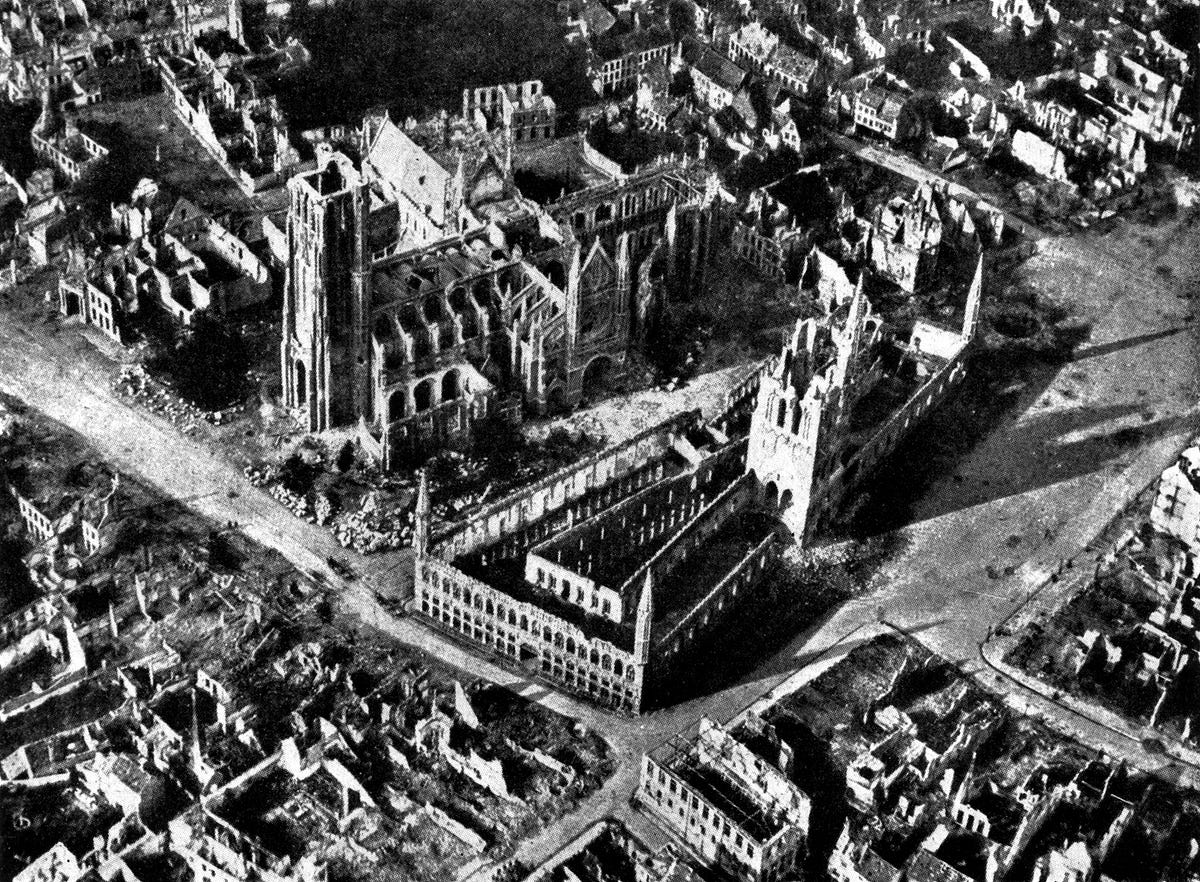
In the interest of fostering a sense of pride for Hamilton College’s past and to connect this past with Hamilton’s present and future,
The Spectator
has decided to re-publish a collection of archived articles.
The Spectator
will feature pieces from this week in past years.
A few notes: This article was published in
Hamilton Life
, a predecessor to
The Spectator
that began in 1899. It followed a name change from
The Hamilton Campus
, which came from the original publication entitled
The Radiator. Hamilton Life
had an annual subscription cost of $2, which is about $38 in today’s U.S. dollar.
This article from 100 years ago describes a speech given by Hamilton alumnus Carlos H. Stone, Class of 1878, on the conditions in Belgium during World War I. It is inevitable that modern readers experience these events and their subsequent descriptions differently than did readers in 1917, as we are blessed with the clarity of hindsight and a knowledge of the outcome of the war. Dr. Stone’s speech attempts to make sense of the disorientation and destruction of “the war to end all wars,” and is both haunting and hopeful.
“Dr. Stone” ends with a list of some of the Hamilton College students who were drafted into the military and sent to “Camp Dix” (now Fort Dix in Trenton, New Jersey), which is a still-active military base established in July of 1917 to train army soldiers. The students from Hamilton College who were sent to “Camp Dix” were among its first trainees. It is important to remember the events of World War I not as distant battles and skirmishes, but as real, personal events that permanently impacted the lives of students who attended Hamilton College.
Shut Off From World
A vivid picture of the war conditions in Belgium behind the German lines was sketched by Carlos H. Stone [Class of 1878], in his address last Thursday evening in the Chapel. Dr. Stone was formerly the headmaster of the Stone School at Cornwall-on-the-Hudson. He has been stationed in Dinant in the district of Namur [in Belgium] since the beginning of the year engaged in the Belgian relief work as one of a committee of Americans supervising the distribution of food.
“I desired to get into the biggest life-saving organization in the world,” declared Mr. Stone, “and for this reason I chose the Belgian relief work. Mr. Hoover, who was at the head of this organization, is a great statesman, an experienced, efficient, and trustworthy man. He put the organization on its feet by securing from England and France appropriations amounting to $12,500,000 [about $241 million in today’s U.S. dollar] each month. The work of the commission was to distribute to the Belgians the food purchased with this money.
Young Men Escape
Mr. Stone described how the Belgian young men escaped across the border. After he becomes nineteen, every Belgian considers it his duty to cross the border and join the Belgian forces training in England. The frontier is guarded by electrically charged barbed wire and patrolled by German soldiers.
The real hardship of the Belgians is their being shut off from the rest of the world, and not the scarcity of food. Lack of communication with friends and relatives who have been in the Belgian army in France since the fall of 1914, and who have not been heard of since that time is the greatest trial of the Belgians. The upper class have sufficient money to pay the exorbitant prices for food, and the poor are well taken care of by the relief committee. The greatest privation is felt by the middle class shopkeepers who are left without resources except stock in trade which cannot be renewed as it is gradually sold.
Belgians Not Treated Harshly
Mr. Stone stated that he had seen no harsh treatment of the people by the Germans. The stories of children having their hands cut off were probably fictitious and untrue. One thing which aroused the Belgian resentment was the deportation of men into Germany in order to replace the civil population which had been taken to the front. A great problem that confronted the people last spring was the thrusting of 34,000 dependents upon the villages of Belgium. These had been removed from the territory being evacuated by the German army. The only atrocities were committed by the Germans in the beginning of the war. They would ravage and burn unfortified towns so that they would terrify fortified towns into surrender.
Germany Not Beaten
Dr. Stone asserted that it would be a hard fight. Germany is not beaten and will not admit defeat until thoroughly whipped. France is wearing out and a good deal depends upon the Americans to encourage her and support the Allied armies in the spring drive next year.
Charles Magnan ’10 is preparing for national service in the second officers’ training camp at Fort Niagara.
Among the Hamilton men who have been drafted and are now at Camp Dix are: Fulton, ’16; Henty, ’16; Root, ’18; Smith, ’18; and Clay, ex-’18.

























